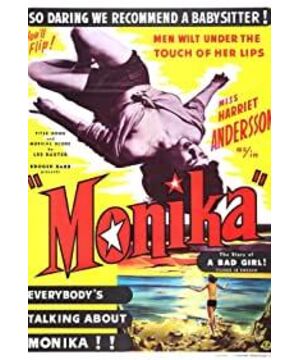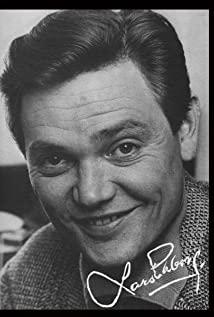Bergman’s energetic work is not full of religious metaphors and references to life philosophies like "The Seventh Seal," "Wild Strawberry," or "The Virgin Spring," The distance between the two and the narrative structure are not that complicated, and the straightforward narrative is difficult to make this film be classified as Bergman's work. There are no religious metaphors and symbolic surreal images, but a relaxed conversation in the city, abandoning the shape of the picture, and choosing a plain narrative, which is naturally a rare gospel for audiences who like stories. The style of the whole film is easily reminiscent of Italian neo-realism, carrying the camera to the street, simple setting, and non-professional actors, focusing on the lives of ordinary people, and shooting their troubles, joys and dissatisfaction. , And unpretentious character. The "Bad Girl Monica" filmed in 1953 is only a few years away from the beginning of Italian neo-realism. There is a rigid relationship between the two. Although it is biased, there are still traces to follow. The characters in the dialogues close to life are brought to life by adding background noise to the sound processing, such as family quarrels, the mumbling of lovers on the street, and the joy of elopement on the yacht. At the same time, the film also reveals the director's disgust towards high society. When Monica was hungry and was caught stealing food, the wealthy family would look at her with contempt from time to time. Bergman gave the heroine Monica a very strong character in this film, which is also very abnormal. It's hard to believe that the Grim Reapers or knights in "The Seventh Seal" have self-expression ideas. They are just symbols set by Bergman to contribute to the theme of the whole film. Therefore, Bergman must have his own unique reasons for designing a character like Monica. In fact, Bergman and the actor who played Monica did have a relationship for some time. The story itself sets up various rebellious factors. The heroes and heroines are treated unfairly in their respective working environments, and the oppression of the boss and colleagues is unbearable. At this time, anger is the virtue, and swallowing his breath becomes the devil. Escape the rigid and indifferent people, reject the label imposed on them by the world, Halle and Monica choose to elope, obeying the hot youthful breath in their hearts. In the film, Monica stared at the camera, breaking the fourth wall not only to express her fearless attitude, but more importantly, to convey to the audience Monica's aversion to closed society, conservative thinking and boring life. The lens initially focused on the oppressive and painful living environment of the hero and heroine. Hostility, indifference and contempt have become the norm, so the daily pain only increases. When switching to a two-person camera, it indicates this I relieved the burden of the couple who had the same illness and became one, enjoying the beautiful life I created. Monica and Halle, who were drifting on the sea, seemed to have found their paradise, without restraint. However, although youth is a splendid firework, beautiful when it burns, it will soon be extinguished. Once firewood, rice, oil and salt are involved, there will be negative energy that gradually accumulates, and quarrels are inevitable. What happened between Halle and Monica may be Bergman's idea of marriage. Marriage is the cage of love, making it moldy and rot.
View more about Summer with Monika reviews









